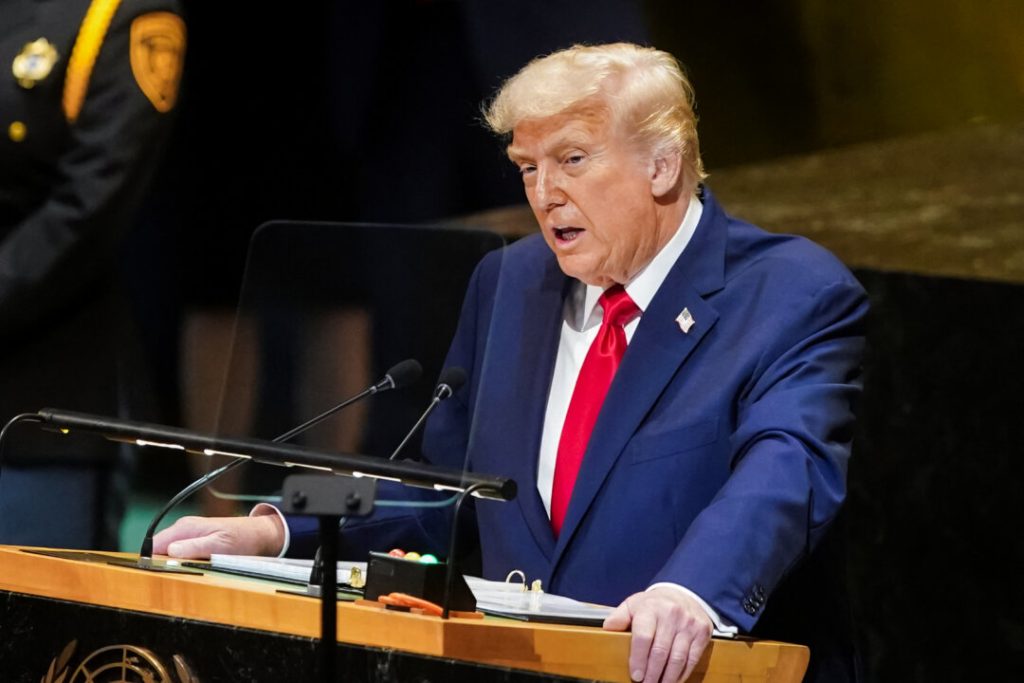Trump Takes Aim at Globalist Agendas
In a blunt address before the U.N. General Assembly, President Trump laid out a sharp critique of the international order and the people running it, arguing they too often put global schemes ahead of national interests. He made the case that American leadership has been picking up the slack for cautious or compromised institutions that fail to secure real outcomes. The tone was unapologetic and direct, which is exactly what many conservatives wanted to hear.
From a Republican perspective, his central complaint is familiar and straightforward: institutions that talk a lot rarely get things done. The United Nations, he said, did not step in to help broker deals where the United States carried the risk and did the heavy lifting. That line landed with a base tired of handwringing and eager for clear results.
Trump pointed to his own record as proof of pragmatic leadership and to argue for a new calculus in international relations. He stressed that when America acts from strength and clarity, it secures peace through deterrence and tough negotiation, not through endless committee talk. That argument flips the globalist script, which favors multilateral processes and bureaucratic management over decisive national action.
He accused the globalist elite of treating sovereignty as an inconvenience rather than the foundation of self-governance, and he called for reasserting national control over borders, trade, and the rules that matter most to citizens. For many Americans, this is not isolationism, it is common sense, the idea that governments exist first to protect their own people. Republicans hear that as a promise to put the safety and prosperity of citizens over abstract global projects.
“I ended seven wars, dealt with the leaders of each and every one of these countries, and never even received a phone call from the United Nations offering to help in finalizing the deal,” Trump told the gathered assembly on Tuesday.
That exact quote is a punchy reminder of his central claim: deeds matter more than speeches. Whether you cheer or jeer, it forces a question modern conservatives have been asking for years, which is who actually produces peace and who just pontificates about it. For Republicans, the answer is clear—strong national leadership, backed by military readiness and diplomatic toughness.
He also singled out the sprawling international bureaucracy as a problem for democratic accountability, arguing that decisions made in conference rooms far from voters weaken national control. The complaint echoes a broader conservative argument that elites, insulated from elections, steer policy toward abstract goals rather than the day-to-day welfare of ordinary people. That frustration fuels a push for transparency, reduced spending on pet global projects, and a reorientation toward tangible results.
Trump’s remarks pushed past abstract criticism to practical points about trade, defense spending, and burden sharing among allies. He argued that fair trade deals and shared defense responsibilities give America leverage and buy stability without surrendering sovereignty. That is a core Republican theme: allies should pull their weight, and trade should be reciprocal, not a one-way subsidy to competitors.
On the subject of peace deals and conflict resolution, he made a simple claim: you do not create durable settlements with moralizing lectures and endless rounds of talk. You secure them with clear incentives and the ability to enforce agreements when parties cheat. Republicans regard that as realistic statecraft, not cynicism, because it recognizes human incentives and the need for deterrence.
Trump also used the stage to critique what he described as a cultural and ideological tilt within many international institutions, where fashionable policies often trump common-sense governance. He argued that imposing global norms without popular consent breeds backlash and instability, not harmony. For conservative voters, that resonates as a defense of local customs, law, and democratic consent against top-down mandates.
Behind the rhetoric was an appeal for accountability: make multinational institutions earn their keep by producing verifiable results and showing restraint when their actions clash with national interests. That means tougher audits, clearer mandates, and a willingness to withhold support when institutions act contrary to Americans’ priorities. It is a message that lines up with Republican calls for fiscal responsibility and sovereignty.
The speech was both combative and strategic, designed to shift the conversation from globalist moralizing to national performance and outcomes. Whether the international community responds with reforms or sharp rebukes remains to be seen, but the message to domestic conservatives was unmistakable: stand firm on national interest, demand results, and stop ceding control to distant elites. For Republicans who have long felt sidelined by establishment globalism, that is not just a policy stance, it is a political rallying cry.
